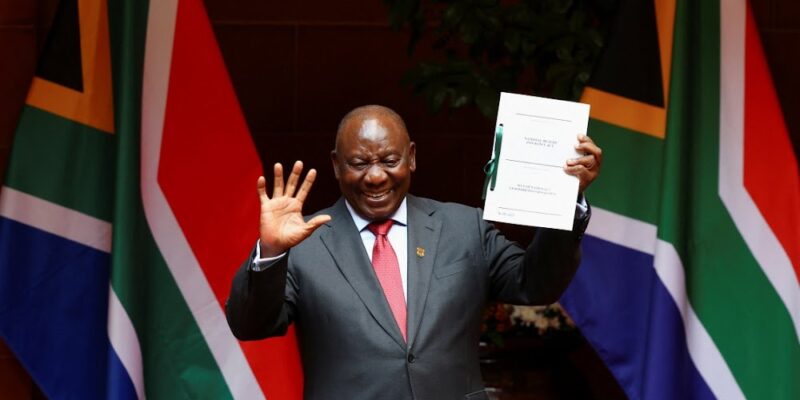President Cyril Ramaphosa’s signing of the National Health Insurance (NHI) Bill on Wednesday doesn’t necessarily guarantee that it will become law, especially if the ANC loses power, says University of Cape Town constitutional law expert Pierre de Vos.
Ramaphosa strategically signed the bill into law 14 days before the election on May 29.
De Vos says a new government “may decide not to implement it and repeal the new NHI Act if they don’t agree with the law, but to do that they would need the majority of votes in the National Assembly”.
Universal access to health care — giving everyone access to quality health care regardless of how much they can pay — is high on the agenda of most political parties contesting the election.
Bhekisisa has analysed the manifestos of 16 parties; 14 of them address universal access to health care in their manifestos, but they disagree that the NHI is the most effective way to achieve such care.
Surveys show ANC support is dwindling
Results from an Ipsos poll in April showed that voter support for the ANC, the party that’s held absolute power for the past 30 years, is hovering around 40%. If the ANC doesn’t get at least 50% of the votes, it would likely have to form a coalition with smaller parties; the lower the proportion of votes the party gets, the higher the possibility of a coalition is.
Political parties such as the DA, and trade union Solidarity, as well as the institutions representing medical schemes, such as the Board of Healthcare Funders, have indicated that they plan to take the government to court to test the constitutionality of the act.
But Ramaphosa was adamant on Wednesday: “For those who would like to continue to enjoy privilege, you are on the wrong boat; the boat we’re on is equality.
“What we’re trying to build is a Rolls-Royce health-care system for everyone.”
At the moment, South Africa has an unequal, two-tiered health system, where health spend is split about 50/50 between public and private services — yet about 80% of the country’s population depend on using state facilities.
NHI aims to address this uneven distribution of health spending by merging the public and private health-care systems into one and creating a fund that will act like a giant state medical scheme which will buy health services at set prices from both sectors.









Comments